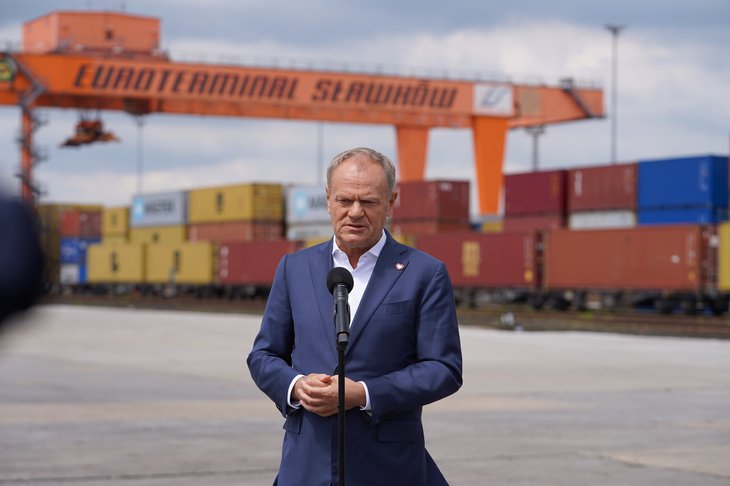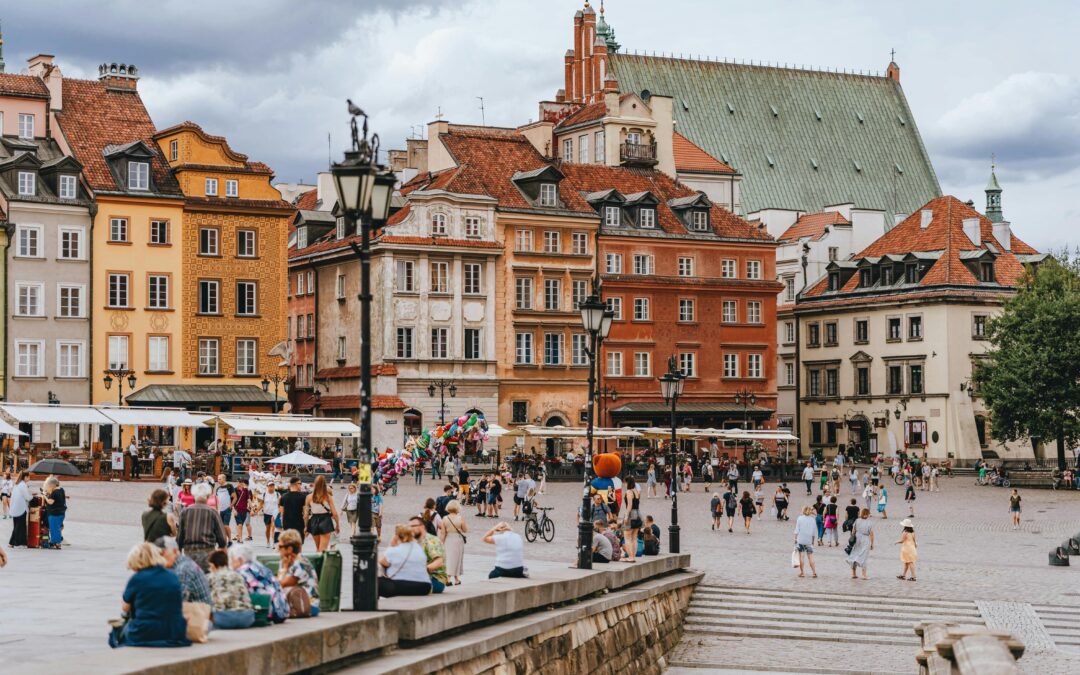Keep our news free from ads and paywalls by making a donation to support our work!

Notes from Poland is run by a small editorial team and is published by an independent, non-profit foundation that is funded through donations from our readers. We cannot do what we do without your support.
Poland plans to invest €1 billion (4.2 billion zloty) to expand the EU’s only cargo hub adapted to handle broad-gauge trains, allowing it to receive cargo coming from Ukraine and Asia.
Located in Sławków, southern Poland, the terminal lies at the western end of the Broad Gauge Metallurgical Line, a rail corridor running from the Ukraine border that can be used by cargo trains from the broad-gauge network in the east (whereas Poland and the rest of Europe use standard-gauge trains).
It is already the EU’s most important overland link for freight arriving from the east. The expansion plans will boost the terminal’s handling capacity by more than 75% and raise annual throughput from 285,000 to over 500,000 twenty-foot equivalent units (TEUs).
🚂 Podpisano umowę inwestycyjną ws. rozbudowy Euroterminala Sławków! 🤝📄
W obecności premiera @donaldtusk i ministra @DariuszKlimczak podpisano przełomową umowę pomiędzy Agencją Rozwoju Przemysłu a spółką Euroterminal Sławków. Inwestycja o wartości 180 mln zł 🚧 wchodzi w… pic.twitter.com/vpfNndtyw4
— Ministerstwo Infrastruktury (@MI_GOV_PL) May 26, 2025
Polish officials say the terminal will play a central role in rebuilding Ukraine after the war and strengthening Poland’s regional transport links.
“This is a golden opportunity for Poland,” said Prime Minister Donald Tusk during a visit to the terminal on Monday. His office says the expansion project will “create the largest logistics hub in the region serving projects related to the reconstruction of Ukraine”.
“When we talk about rebuilding Ukraine, we are not only talking about the need to help Ukrainians after the war, but also about the interests of Poland,” Tusk added. “We are developing this logistical heart of Europe so that the billions of zloty that the world will spend on rebuilding Ukraine can remain here in Poland.”
“In the future, Sławków will also become a transhipment centre for goods from all over Asia and a key transport hub between the Baltic and the Mediterranean,” he continued, emphasising that the government would not allow foreign entities to take control of the hub.
During Tusk’s visit to the terminal, the state-run Industrial Development Agency (ARP) and Euroterminal Sławków signed an agreement for a 180 million zloty (€42.4 million) investment to launch the first stage of the terminal’s expansion.
According to ARP, the plans include building a second intermodal terminal with seven new tracks and installing modern equipment to handle intermodal containers between 2026 and 2027.
ARP’s president, Wojciech Balczun, said that work has already begun on preparing the second stage of the project, and that the total planned investment in expanding the terminal is estimated to reach €1 billion.
Euroterminal Sławków specialises in the transhipment of commodities such as coal and iron ore, bulk goods (including construction materials, steel and fertilisers), and intermodal containers carrying products like electronics, textiles and food. The terminal works closely with the ports of Gdańsk and Gdynia.
Gdańsk in Poland has become the EU’s fifth-busiest port, overtaking Algeciras in Spain and HAROPA in France, the latest @EU_Eurostat data show.
Meanwhile, national data show that Poland’s ports reported record financial and operational results in 2024 https://t.co/q4QFf8df2G
— Notes from Poland 🇵🇱 (@notesfrompoland) January 15, 2025

Notes from Poland is run by a small editorial team and published by an independent, non-profit foundation that is funded through donations from our readers. We cannot do what we do without your support.
Main image credit: Agencja Rozwoju Przemysłu (under CC BY-NC-ND 3.0 PL)

Alicja Ptak is deputy editor-in-chief of Notes from Poland and a multimedia journalist. She has written for Clean Energy Wire and The Times, and she hosts her own podcast, The Warsaw Wire, on Poland’s economy and energy sector. She previously worked for Reuters.



















